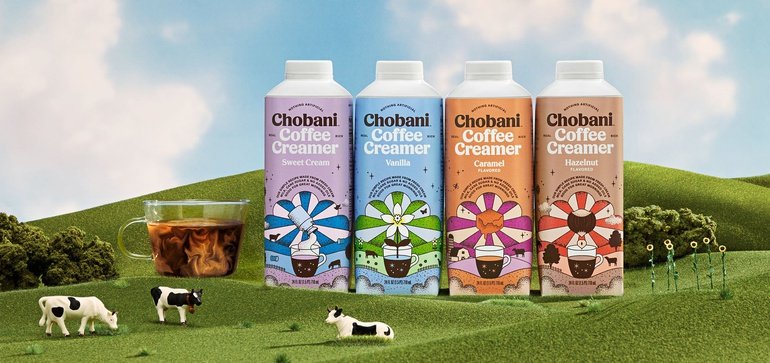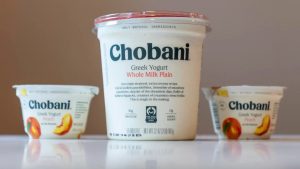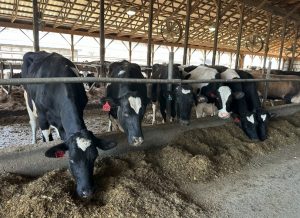
In a statement provided to Food Dive, Hamdi Ulukaya, Chobani’s founder and CEO, said the company will “look at all options carefully to fuel our ambitious plans, especially with oatmilk and plant-based products. An IPO is definitely one exciting direction.”
While Chobani is synonymous with the Greek yogurt category it helped popularize, the food company has been rapidly expanding its product offerings into oat- and plant-based options, ready-to-drink coffee and creamers. An IPO could give Chobani more funding to grow its reach in these and adjacent areas.
For years Chobani seemed content building and innovating in its core Greek yogurt offering, which it first introduced in 2008. But while yogurt remains the biggest revenue generator for the New York dairy giant, Chobani has moved aggressively in recent years to expand into other fast-growing areas popular with consumers and transform itself into a modern food company.
Last month, Chobani took its biggest step yet to grow beyond dairy with the rollout of RTD cold brew coffees. It also has expanded into oat-based milks and creamers, and rolled out yogurts blended with nut butters, a line for children, a variety made from plants and a lactose-free Greek yogurt. In December 2020, it doubled down on probiotics already in high demand during the pandemic through a line of yogurts, drinks and pouches loaded with the microorganism.
“We’ve got a lot of plans to go beyond yogurt,” Peter McGuinness, president of Chobani, said last summer. “We absolutely have accelerated [our innovation] and there is no turning back because you can’t plateau or you go backward, which is why we’re just continuing to set a higher bar. Expect us to continue this pace for quite a while.”
Chobani has more than $1.5 billion in annual revenue, according to Bloomberg. While the pace of innovation has already accelerated significantly in the last few years, Chobani has promised that more product launches are coming. Going public would provide extra financial resources to fuel that growth and boost Chobani’s access to capital-raising opportunities. An IPO also would allow it to expand its investor base and increase the liquidity of its stock so investors could get in and out of the shares more easily, making it a more attractive investment.
Chobani explored selling a minority stake five years ago but decided against it after PepsiCo and other suitors wanted a majority stake. Today, Chobani is a much more mature business, and opting against a partial sale in 2016 has proven to be a smart move. It recently hired new executives to shore up its C-suite, including Jody Macedonio as its CFO.
Early evidence indicates Chobani is in the initial stages of exploring an IPO and there is no sign it has decided one way or the other. With Chobani appearing in good financial shape and sporting a portfolio of on-trend offerings, it could consider other ways to monetize the business by selling a small stake, the whole business or just staying the course if it decides against an IPO.
The food space is suddenly a hotbed of IPO activity with several companies entering the public markets or planning to do so in the near future. Stryve Foods, a maker of air-dried meat products, announced plans last week to merge with a blank check company. In 2020, the 100-year-old snack maker Utz also went public using the same investment vehicle. And plant-based premium food company Laird Superfood went public last year and appears to be off to a strong start.
But it’s the next wave of big-name food companies, including Chobani, that could be particularly enticing. Swedish oat milk brand Oatly has reportedly been considering an IPO. Plant-based egg maker and cell-based meat developer Eat Just also has long been pondering an IPO; CEO Josh Tetrick said last year his firm could consider going public in 2021. As Wall Street looks for new places to put its money, the food space could soon become an even hotter place to invest.























